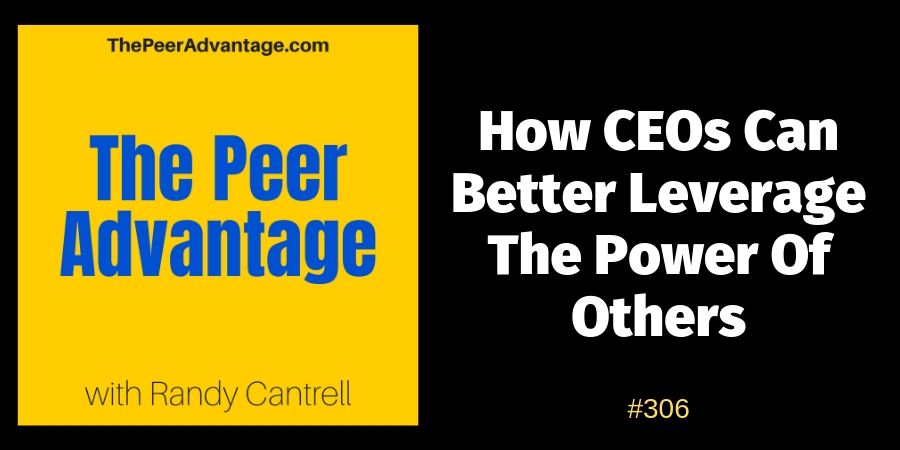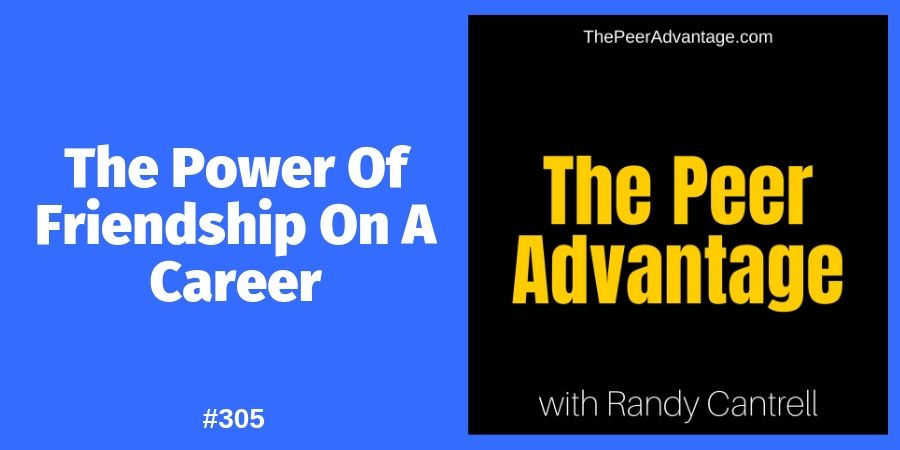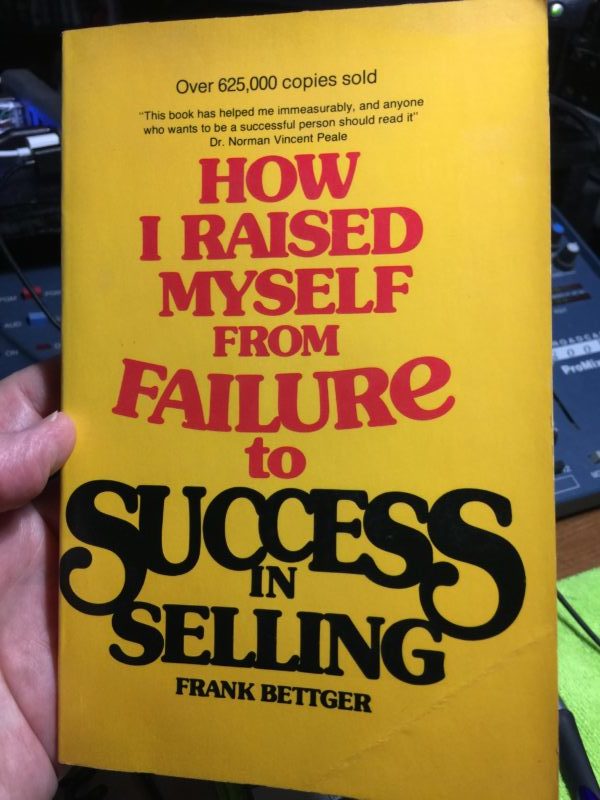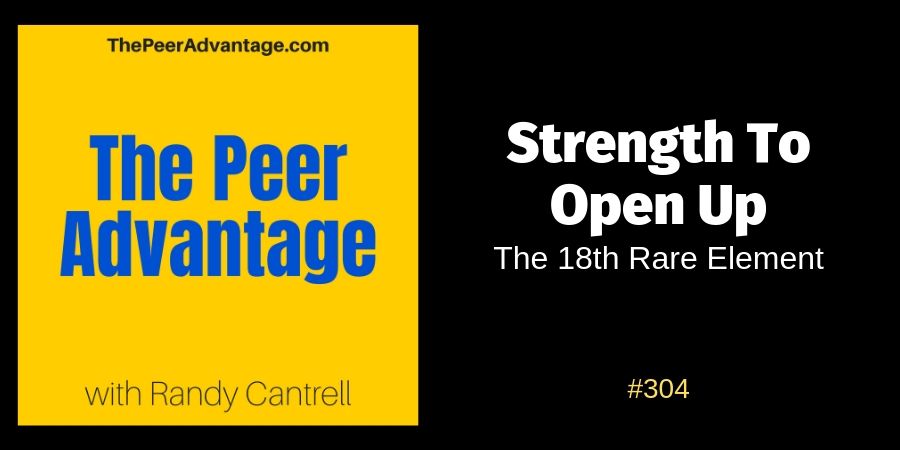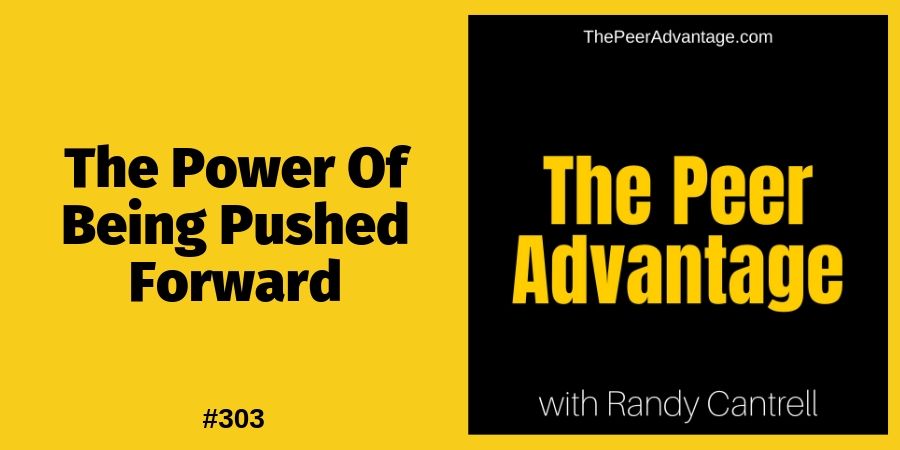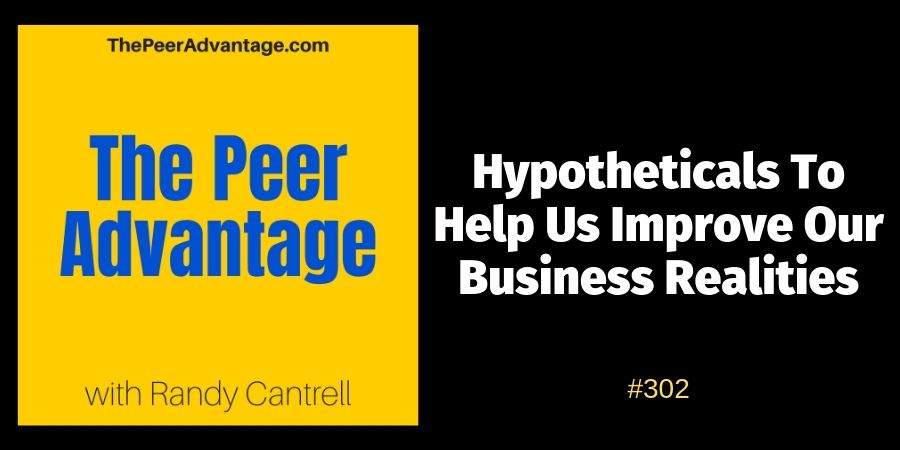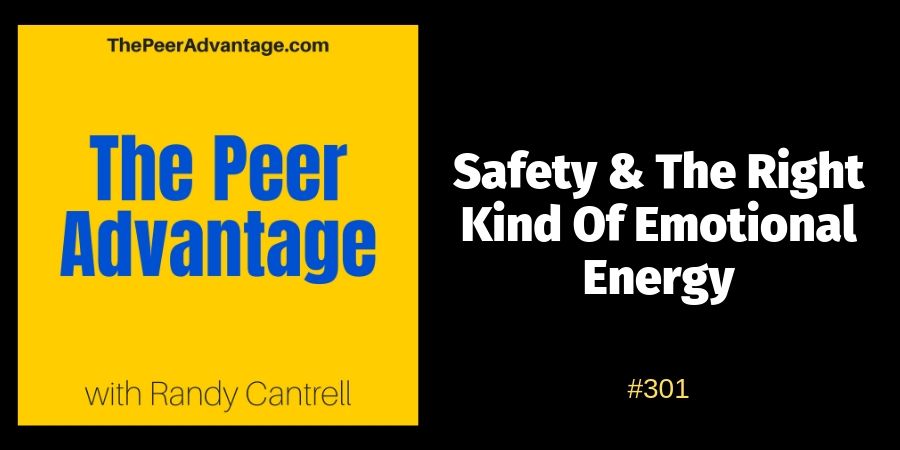Podcast: Play in new window | Download (Duration: 11:34 — 14.2MB)
Subscribe: Apple Podcasts | Spotify | | More
Safety and encouragement. They’re vital to our ability to grow, overcome adversity and battle whatever life is tossing our way. Here’s a worthwhile daily admonishment…
Help somebody feel safe today.
The topic had a genesis over at my hobby podcast, LeaningTowardWisdom.com, which I’ve dubbed #CravingEncouragement. The idea took form out of the professional conversations I have with top-level leaders. I started asking CEOs and business owners to share with me a time when they were encouraged in a meaningful way…encouragement that made a positive difference in their life.
The startling result in every single instance was a story that went back years. Most of the stories went back to childhood or teenage years. Nobody ever begins their story with, “Just the other day…”
The question then becomes, “When was the last time you gave encouragement in a meaningful way? I don’t mean an atta-boy pat on the back. I mean a true, genuine expression of belief in somebody.” After all, that’s what real encouragement is.
Almost always the person will struggle to remember the last time they did that. Especially in a professional setting.
Yet we all know what encouragement feels like. We all understand how valuable it is when we’re the recipient. And I added the verb “craving” because it’s what I’ve found we all do. We yearn for it.
Why this, is it so elusive? Why don’t we do it more often?
One answer I’ve found is in this notion of safety and emotional energy. There’s no separating safety and emotional energy. They go hand in hand.
Many of us are far more acquainted with how it feels to live under the threat of judgment and have to wrestle through the emotional drains that accompany it.
But judgment is easy. Compassion is hard. And compassion is required in order to deliver encouragement.
Additionally, emotional energy being elevated is hard. Draining is easy.
So perhaps it’s that whole “path of least resistance” thing happening. We judge. We criticize. We drain energy. Because those are likely experiences we’ve mostly received. Maybe those behaviors have been so modeled in front of it, we’ve become experts at them. Failing to pause long enough to understand there must be a better way.
Emotional energy surrounds you. Personally. Professionally.
Some of it is positive, some negative.
Some emotional energy is achievement-oriented.
Some emotional energy is healthy, fostering growth. Some is unhealthy, stunting growth.
Who drains your energy? Who gives you energy?
What drains your energy? What gives you energy?
It’s high time to come to terms with the security or safety of your life and the energy in your life…with the intention of making sure you’re surrounded by the right people who can deliver both. It’s been my experience that a person who provides safety for you also elevates your energy. Again, I’ve found the two inseparable.
As a business owner, it’s especially urgent for you to be in touch with the truth. And to avoid that whole “emperor has no clothes” problem.
To do that means you need the right people around you. People who may serve different roles for you, but people who – in their diversity share the common qualities of safety and energy giving.
This isn’t’ some self-centered exercise in autocratic tyranny where the world exists simply to serve YOU though. It begins with your leadership. Your courage and vulnerability to challenge yourself.
How can I become a person with whom others feel safe and energized?
While that question is directed at the man in the mirror, appropriately so, it’s really the thrust of a bigger question.
Who can I help feel safe today? Who can I energize today?
No, the rhetorical (or practical) answer isn’t “everybody.” You’re not going to make everybody you contact or know feel safe. Some people aren’t going to trust you and it may have nothing to do with you. Or anything you’ve said or done. They simply will not trust you.
Maybe it’s because of your position or title. Maybe it’s because of your authority. Maybe it’s because of your lack of position or title. Or your lack of authority. The point? It could be for a million reasons over which you have no control or influence. It’s like making every sale. You won’t. Some will buy. Some won’t. And it won’t matter what you do. It’s just how things go. Don’t dwell on the failure. Move on to find somebody willing to let you serve them as well as you can. It’s a big world filled with people craving encouragement. You have plenty of them in your life to keep busy for a very long time. We all do.
By working to become such a person you will learn how to better attract the right people. They’ll likely be people naturally bent that way, or people working hard to become that way. It won’t be somebody with no idea about it all. Nor will it be somebody who thinks in shallow, limited possibilities. It will be the person with enough self-lessness to listen, understand and grow. Those people are best able to help you do the same.
It’s reciprocal. So today, I’m encouraging you to first give. Find ways to carefully look at the people in your life – personally and professionally. Figure out how you can increase their sense of safety. Make them feel safe enough to lean on you. To trust you more deeply. To believe (not because you’re pulling the wool over their eyes, but because you’re genuine) that you want the best outcome for them and you’re confident enough to let them decide. It’s not about living their life for them (judgment), but it’s about helping them live their best life.
Do that and you’ll be unable to avoid amplifying the energy in their life. Once you prove yourself they’ll want more. The experience is so extraordinary, people learn to crave it more and more. It will provide strength and depth to your leadership because we’re all attracted to people who make us feel safe and give us more energy. The rarity of these resources is your leadership edge and it’s ENORMOUS.
But this is all one big chicken versus egg dilemma. Which comes first? Both. And simultaneously. My conviction is that you can’t just go looking for the right people to surround you without working (at the same time) to become a person others need.
Give yourself to finding and delivering on it. Commit to it. Not as a tactic, but as a way of life. A way of living. A non-negotiable daily behavior that defines you. That’s how you’ll make the biggest impact on the world, your business and your life.
Be well. Do good. Grow great!
Randy
